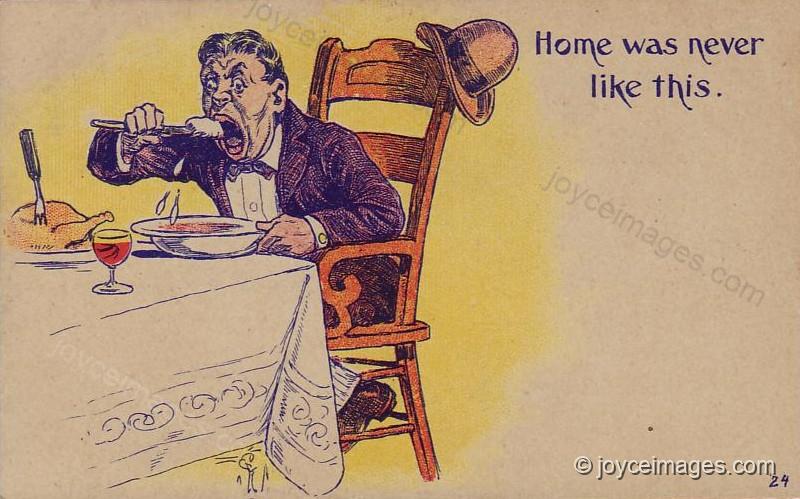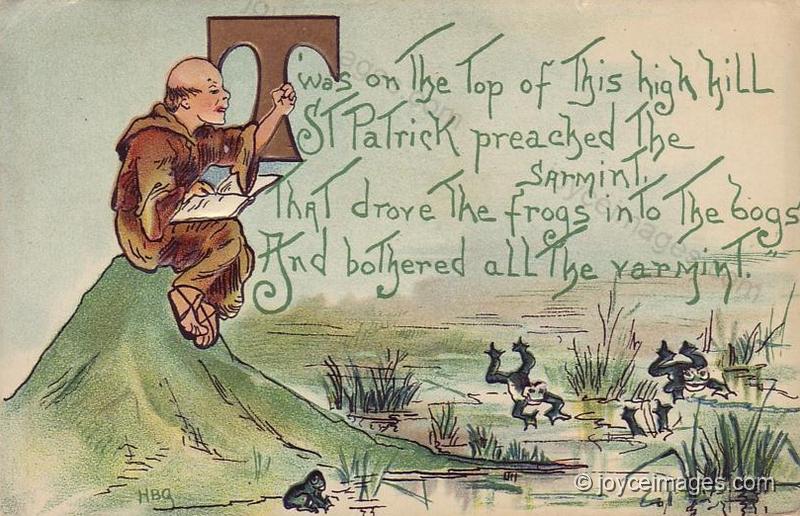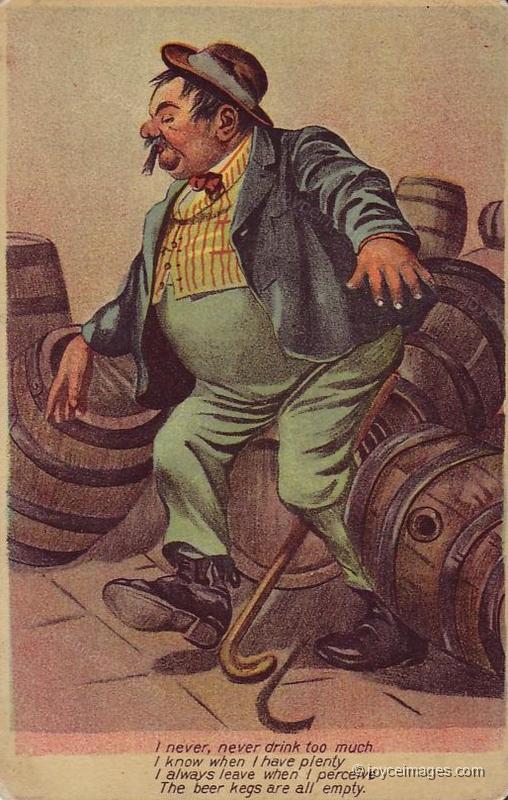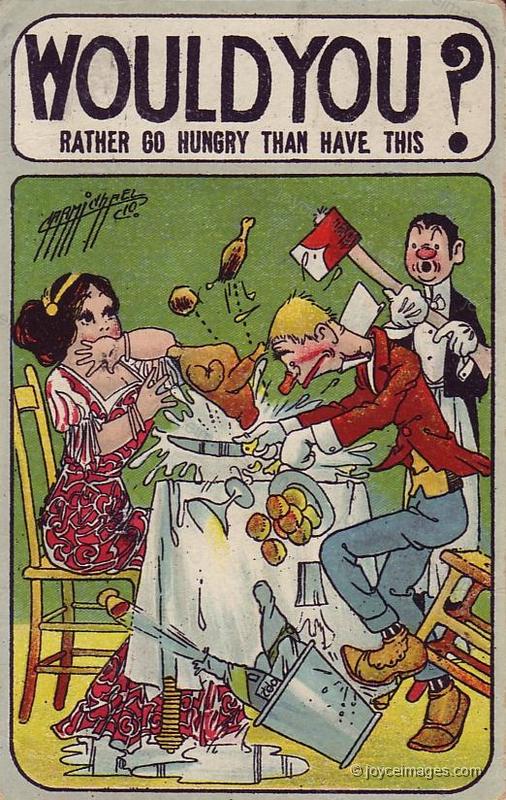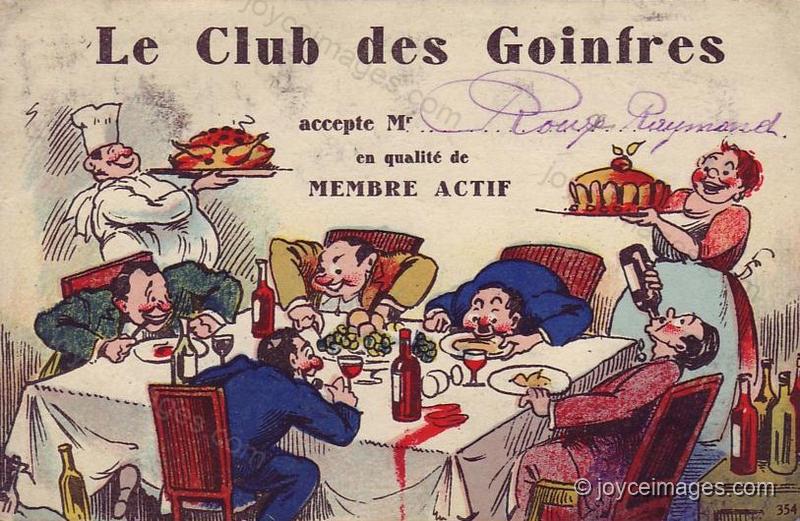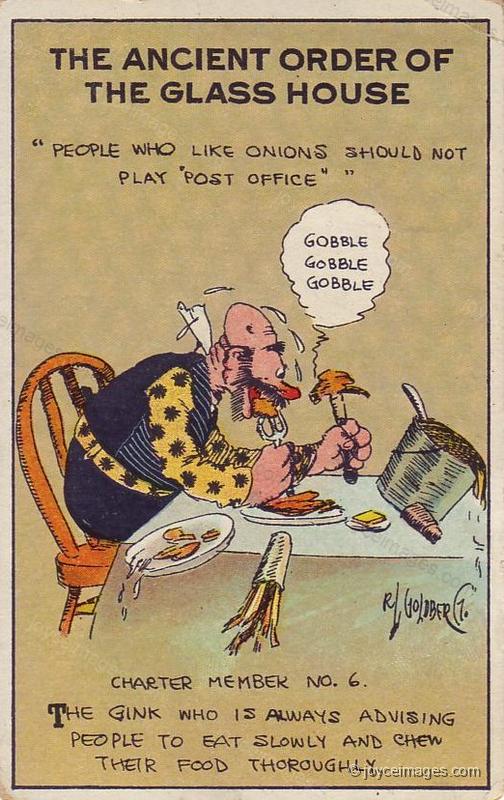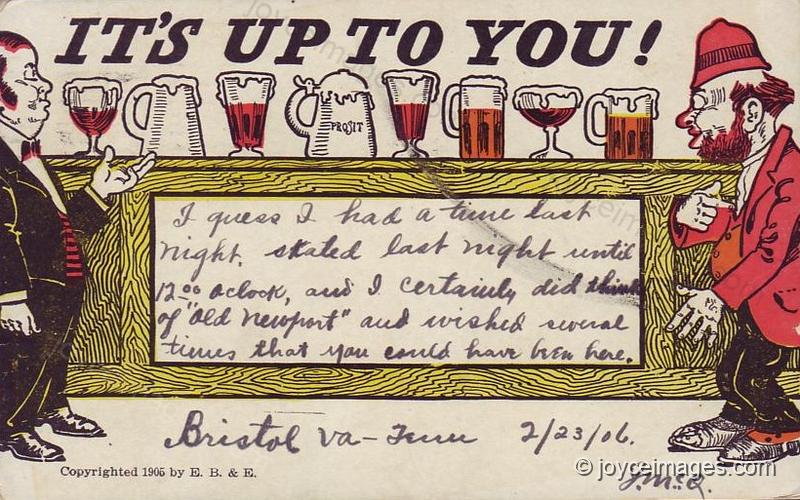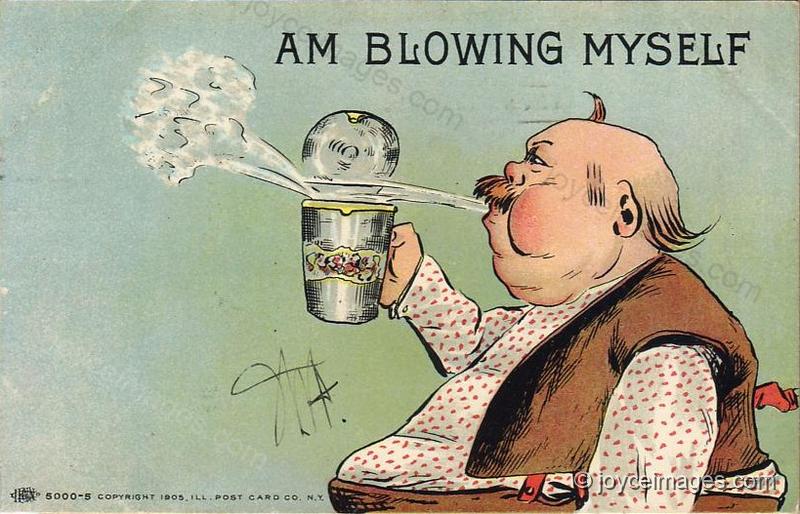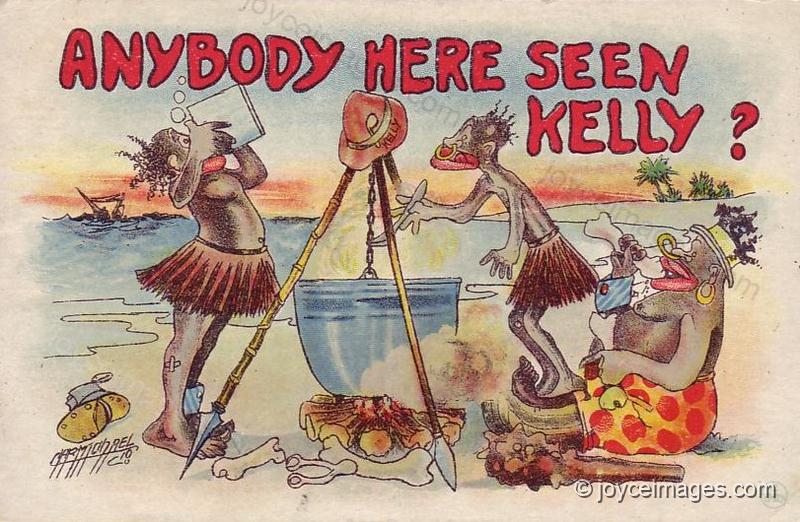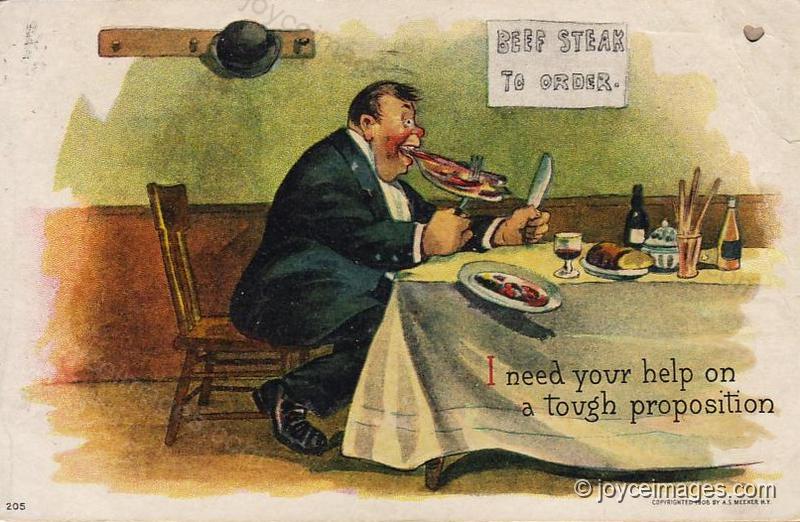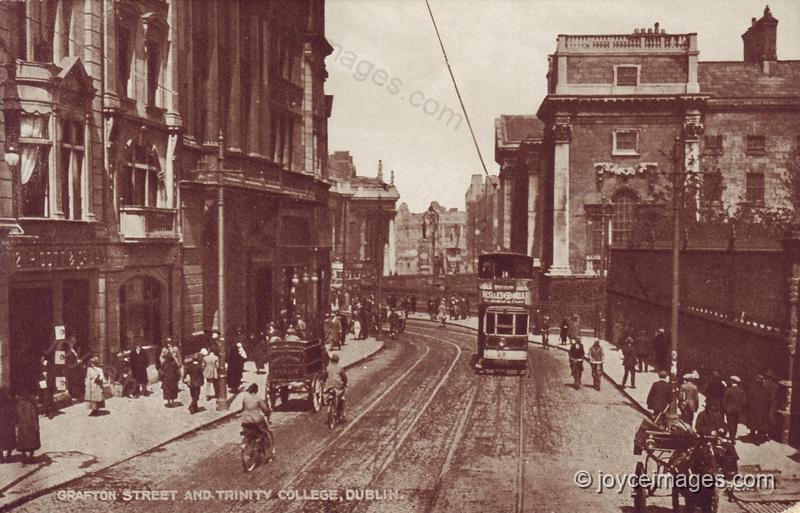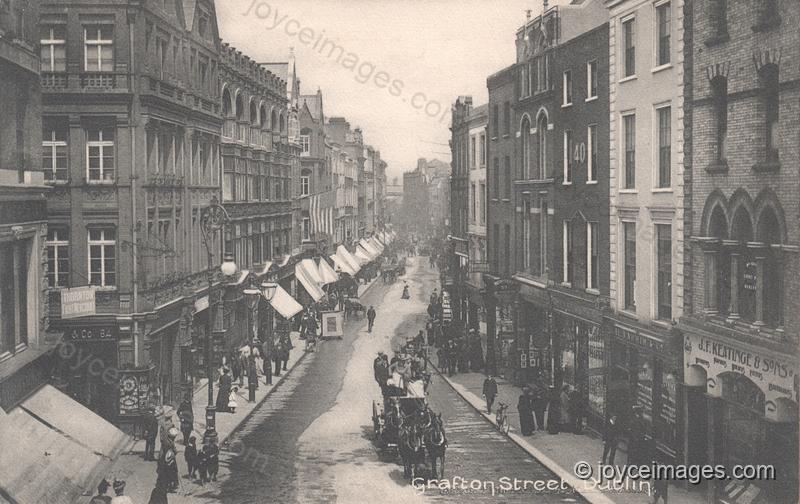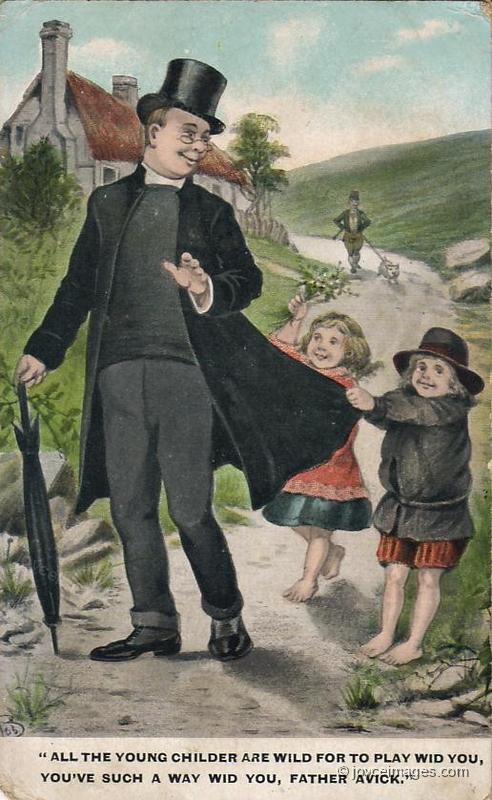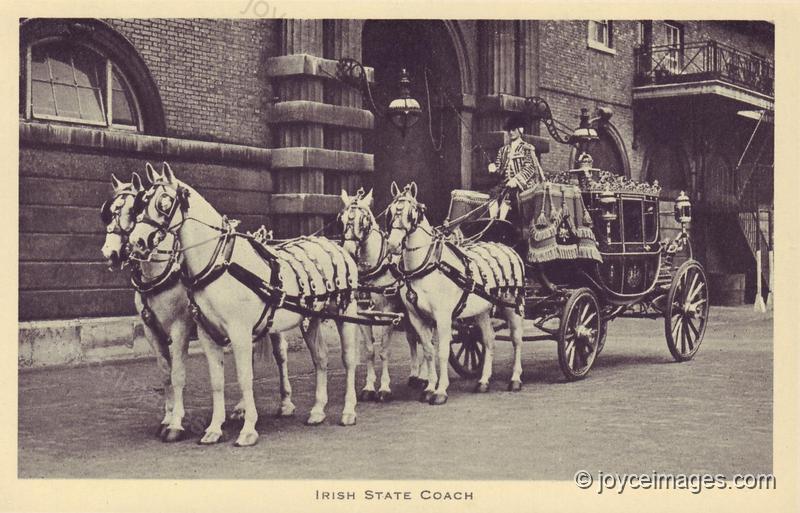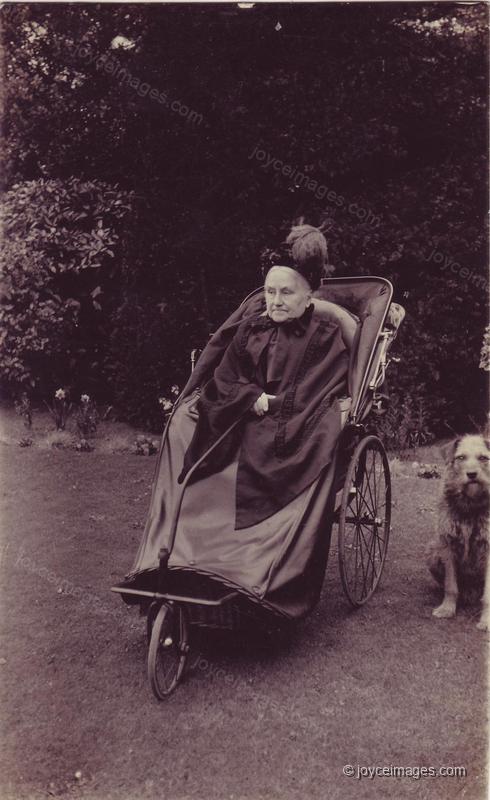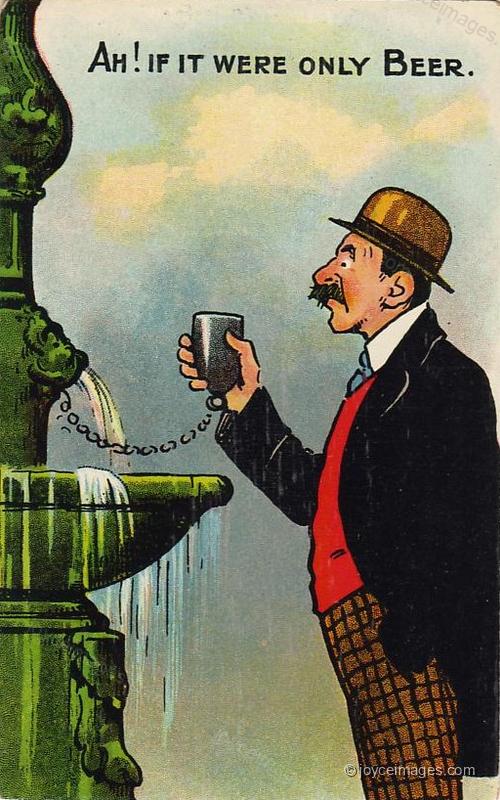"A man spitting back on his plate: halfmasticated gristle: no teeth to chewchewchew it. Chump chop from the grill. Bolting to get it over. Sad booser's eyes. Bitten off more than he can chew. Am I like that? See ourselves as others see us. Hungry man is an angry man. Working tooth and jaw Don't! O! A bone!." (U8.659)
"That last pagan king of Ireland Cormac in the schoolpoem choked himself at Sletty southward of the Boyne. Wonder what he was eating. Something galoptious. Saint Patrick converted him to Christianity. Couldn't swallow it all however.
- Roast beef and cabbage.
- One stew." (U8.663)
- Roast beef and cabbage.
- One stew." (U8.663)
"Smells of men. Spaton sawdust, sweetish warmish cigarette smoke, reek of plug, spilt beer, men's beery piss, the stale of ferment.
His gorge rose." (U8.670)
His gorge rose." (U8.670)
"Couldn't eat a morsel here. Fellow sharpening knife and fork to eat all before him, old chap picking his tootles. Slight spasm, full, chewing the cud. Before and after. Grace after meals. Look on this picture then on that. Scoffing up stewgravy with sopping sippets of bread. Lick it off the plate, man! Get out of this." (U8.673)
"He gazed round the stooled and tabled eaters, tightening the wings of his nose.
- Two stouts here.
- One corned and cabbage. " (U8.678)
- Two stouts here.
- One corned and cabbage. " (U8.678)
"That fellow ramming a knifeful of cabbage down as if his life depended on it. Good stroke. Give me the fidgets to look. Safer to eat from his three hands. Tear it limb from limb. Second nature to him. Born with a silver knife in his mouth. That's witty, I think. Or no. Silver means born rich. Born with a knife. But then the allusion is lost.
An illgirt server gathered sticky clattering plates." (U8.682)
An illgirt server gathered sticky clattering plates." (U8.682)
"Well up: it splashed yellow near his boot.
A diner, knife and fork upright, elbows on table, ready for a second helping stared towards the foodlift across his stained square of newspaper. Other chap telling him something with his mouth full. Sympathetic listener. Table talk. I munched hum un thu Unchster Bunk un Munchday. Ha? Did you, faith?" (U8.688)
A diner, knife and fork upright, elbows on table, ready for a second helping stared towards the foodlift across his stained square of newspaper. Other chap telling him something with his mouth full. Sympathetic listener. Table talk. I munched hum un thu Unchster Bunk un Munchday. Ha? Did you, faith?" (U8.688)
"Mr Bloom raised two fingers doubtfully to his lips. His eyes said:
- Not here. Don't see him." (8.694)
- Not here. Don't see him." (8.694)
"He backed towards the door. Get a light snack in Davy Byrne's. Stopgap. Keep me going. Had a good breakfast.
- Roast and mashed here.
- Pint of stout.
Every fellow for his own, tooth and nail. Gulp. Grub. Gulp. Gobstuff." (U8.697)
- Roast and mashed here.
- Pint of stout.
Every fellow for his own, tooth and nail. Gulp. Grub. Gulp. Gobstuff." (U8.697)
"Out. I hate dirty eaters.
He came out into clearer air and turned back towards Grafton street. Eat or be eaten." (U8.701)
He came out into clearer air and turned back towards Grafton street. Eat or be eaten." (U8.701)
"He came out into clearer air and turned back towards Grafton street.
Eat or be eaten. Kill! Kill!
Suppose that communal kitchen years to come perhaps. All trotting down with porringers and tommycans to be filled. Devour contents in the street." (U8.702)
Eat or be eaten. Kill! Kill!
Suppose that communal kitchen years to come perhaps. All trotting down with porringers and tommycans to be filled. Devour contents in the street." (U8.702)
"John Howard Parnell example the provost of Trinity every mother's son don't talk of your provosts and provost of Trinity women and children, cabmen, priests, parsons, fieldmarshals, archbishops. From Ailesbury road, Clyde road, artisans' dwellings, north Dublin union," (U8.706)
Bloom's train of thought includes the Irish song Father O'Flynn (1875) with lyrics by Alfred Perceval Graves and music by C. Villiers Stanford. It has the following verse:
'Don't talk of your Provost and Fellows of Trinity,
Famous for ever at Greek and Latinity,
Dad and the divels and all at Divinity,
Father O'Flynn 'd make hares of them all!'
Bloom's train of thought includes the Irish song Father O'Flynn (1875) with lyrics by Alfred Perceval Graves and music by C. Villiers Stanford. It has the following verse:
'Don't talk of your Provost and Fellows of Trinity,
Famous for ever at Greek and Latinity,
Dad and the divels and all at Divinity,
Father O'Flynn 'd make hares of them all!'
"lord mayor in his gingerbread coach," (U7.709)
The back of this PC reads: "In 1853 Queen Victoria and Prince Consort visited Dublin and this carriage was purchased from M Hutton who was then Lord Mayor of Dublin and a Coachbuilder. The Queen used the carriage on the few occasions she opened Parliament during her widowhood. It is still being used by H.M. Queen Elizabeth II on State Ceremonies."
The back of this PC reads: "In 1853 Queen Victoria and Prince Consort visited Dublin and this carriage was purchased from M Hutton who was then Lord Mayor of Dublin and a Coachbuilder. The Queen used the carriage on the few occasions she opened Parliament during her widowhood. It is still being used by H.M. Queen Elizabeth II on State Ceremonies."
"old queen in a bath chair. My plate's empty." (U9.710)
The bath chair was designed by James Heath of Bath around 1750, and was intended for ladies and invalids. It became very popular during the Victorian period, when it was primarily used at seaside resorts. It superseded the sedan chair as a form of transport in 18 and 19c. Britain. The common bath chair (shown on this PC) was pushed from behind, and steered by the occupant. Queen Victoria's version, built by Cheverton on the Isle of Wight in 1893, could be pulled along by a pony led by a footman.
The bath chair was designed by James Heath of Bath around 1750, and was intended for ladies and invalids. It became very popular during the Victorian period, when it was primarily used at seaside resorts. It superseded the sedan chair as a form of transport in 18 and 19c. Britain. The common bath chair (shown on this PC) was pushed from behind, and steered by the occupant. Queen Victoria's version, built by Cheverton on the Isle of Wight in 1893, could be pulled along by a pony led by a footman.
